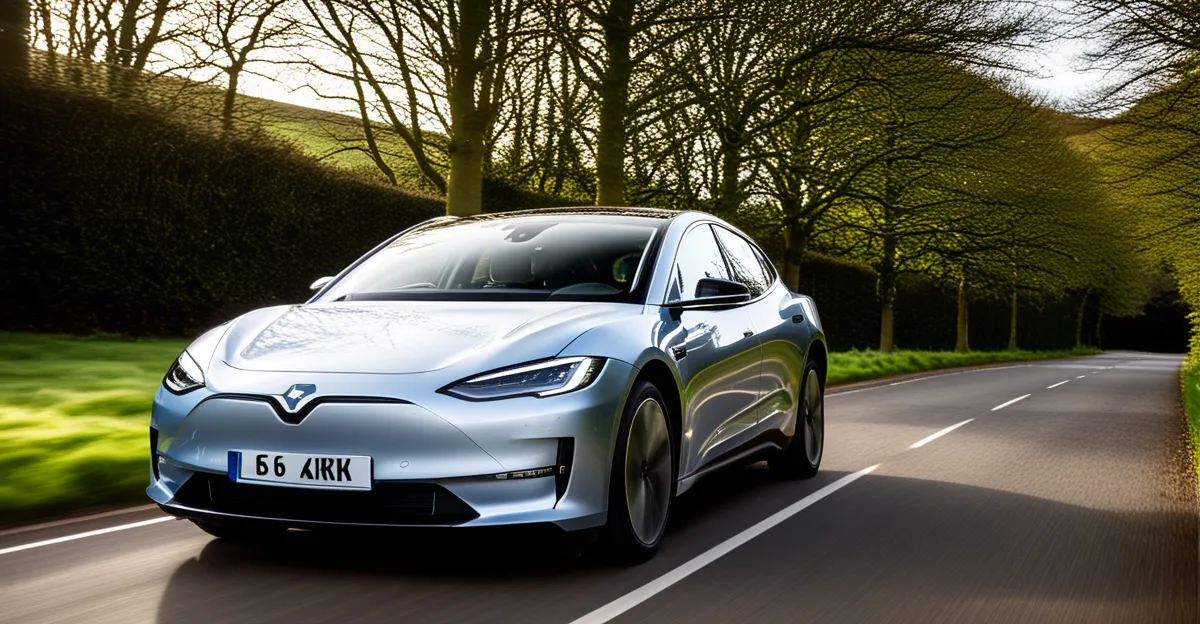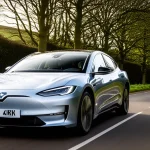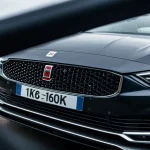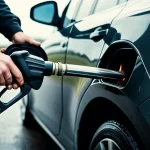Overview of the Electric Vehicle Revolution in the UK
The electric vehicle revolution is reshaping the UK automotive landscape at an accelerating pace. Recent adoption rates demonstrate a significant surge in EV ownership, with electric cars now accounting for an increasing percentage of new vehicle sales. This growth reflects strong consumer interest combined with supportive government policies designed to promote cleaner transportation.
Key legislation, such as phase-out dates for petrol and diesel vehicles and subsidies for electric car purchases, has been pivotal. The UK government’s initiatives, including grants and investment in charging infrastructure, aim to lower entry barriers for EV adoption UK-wide. These strategic moves incentivize more drivers to consider electric models, fostering a robust rise in market presence.
Topic to read : How is the UK automotive industry preparing for a post-fossil fuel era?
Automakers have responded swiftly, with many shifting focus toward electric offerings and battery technology. The shift signifies a profound transformation in UK automotive trends, as manufacturers prioritize electric platforms and innovation to meet demand. Traditional automotive giants and new startups alike are contributing to a rapidly evolving industry that champions sustainability without compromising performance or style. This revolution marks a defining moment for the UK’s transport future.
Transforming UK Automotive Culture
The electric vehicle revolution is reshaping more than just roads; it’s influencing the very heart of car culture UK. Classic car enthusiasts face a cultural crossroads as the rise of EVs alters traditional values centered on engine sounds, mechanical tinkering, and modification scenes. While classic cars have long symbolized heritage and craftsmanship, the shift to electric mobility invites a redefinition of what constitutes passion and authenticity for many enthusiasts.
In parallel : What role does the UK play in the global automotive industry?
Traditional car events and meetups are evolving too. Some gatherings incorporate EV showcases alongside vintage models, reflecting a blending of old and new automotive interests. This transition sparks lively debate within communities—enthusiasts discuss how EV technologies challenge conventional perceptions, pushing for a broader appreciation of innovation without forsaking nostalgia.
Importantly, the influence of the EV impact enthusiasts extends into how modification cultures adapt. With fewer moving parts in electric vehicles, customization shifts focus from engine tuning to software improvements, battery upgrades, and aesthetics. This reorientation is both an opportunity and a challenge, requiring enthusiasts to expand their skillsets while embracing a more digital, technology-driven car culture in the UK.
Benefits and Opportunities for Car Enthusiasts
Electric vehicles are unlocking fresh EV benefits that resonate with car enthusiasts. Performance electric vehicles deliver instant torque and smoother acceleration, offering a dynamic driving experience that rivals many traditional petrol engines. This responsiveness allows tuners to explore novel performance electric vehicles modifications, focusing on software adjustments and battery management systems instead of purely mechanical upgrades.
The rise in EV adoption UK-wide is creating exciting possibilities for bespoke builds. Customisation now integrates cutting-edge technology, including advanced telemetry and energy efficiency innovations. This opens new horizons for enthusiasts eager to blend creativity with high-tech functionality.
Additionally, future proofing is a crucial consideration. As environmental regulations tighten, enthusiasts investing in electric models are positioning themselves ahead of compliance challenges, securing enjoyment of their vehicles without concern for potential restrictions. Adapting to the electric vehicle revolution ensures access to expanding infrastructure and evolving UK automotive trends that favour sustainable, high-performance driving.
By embracing these opportunities, enthusiasts can redefine their passions. They gain skills in software tuning and battery tech, contributing to a vibrant, future-ready car culture UK-wide—merging tradition with modern innovation.
Changes in Legislation and Infrastructure Affecting Enthusiasts
Legislative shifts in the UK are reshaping the landscape for car enthusiasts amid the electric vehicle revolution. New EV legislation UK increasingly focuses on reducing emissions, influencing car modification laws by imposing stricter limits on modifications that affect environmental performance. This creates a challenge for enthusiasts used to freedom in tuning and customizing vehicles. For example, removing or altering emission-control equipment is now more heavily regulated, affecting both petrol and electric vehicle owners.
Infrastructure changes also play a crucial role. While the government invests heavily in expanding public EV charging infrastructure, gaps remain, especially in rural regions and at car events. This limitation complicates the logistics of owning and showcasing electric vehicles for some hobbyists. Developing fast, accessible charging points is still in progress but remains inconsistent across the UK.
Environmental zones established in urban areas introduce further complications. These zones restrict access or impose charges on higher-emission vehicles, impacting traditional car rallies and gatherings. Enthusiasts must navigate these evolving regulations and infrastructure constraints creatively, balancing compliance with their passion for vehicle ownership and modification. Understanding current laws and infrastructure trends will be essential for thriving as the UK automotive market advances toward electrification.
Challenges and Drawbacks for Enthusiasts
The electric vehicle revolution introduces notable EV drawbacks that concern many enthusiasts. One key limitation is the restricted scope for traditional vehicle modifications. Unlike petrol cars, where engine tuning and mechanical upgrades are common, EVs rely heavily on software and battery systems. This shift narrows the modification landscape, causing some purists to question the authenticity and “feel” of electric models.
Charging infrastructure presents another limitation. Despite government efforts to expand EV adoption UK through more chargers, many rural areas and event locations still suffer from inadequate facilities. For enthusiasts attending classic rallies or specialist meets, unreliable or scarce EV charging infrastructure complicates logistics and reduces the appeal of electric vehicles for hobby use.
Cost and accessibility also raise concerns. Advanced battery technology and performance upgrades remain expensive. For hobbyists used to affordable aftermarket parts, this can be a barrier. Furthermore, the technology’s rapid evolution demands continuous investment and technical learning, which may deter some enthusiasts accustomed to hands-on mechanical tuning.
In summary, while the EV drawbacks are tangible, they also highlight critical areas where industry and policy must progress. Addressing these challenges is essential to support a diverse and vibrant car culture UK as the electric vehicle revolution continues.
Outlook and Recommendations for the UK Enthusiast Community
Navigating the EV future UK calls for proactive adaptation strategies from the car community UK. Enthusiasts can benefit greatly by embracing education in electric systems and software tuning, which are becoming essential skills alongside traditional mechanics. Clubs and community groups increasingly serve as hubs for sharing knowledge and resources, helping members keep pace with rapidly evolving technology.
Community efforts play a critical role in preserving car culture UK amid electrification. Many clubs now organize hybrid events blending both electric and classic vehicles, fostering inclusivity while respecting heritage. Advocacy groups also work to influence EV legislation UK by representing enthusiast interests in policy discussions, ensuring fair regulations that balance environmental goals with passionate vehicle ownership.
To navigate the EV transition effectively, enthusiasts should invest in network-building with other EV owners and professionals. Accessing forums, workshops, and local meetups supports a smoother shift. Additionally, staying informed about charging infrastructure developments and new UK automotive trends will help hobbyists plan for future investments wisely.
Ultimately, the vibrant car community UK can thrive by blending tradition with innovation—continuing to innovate while celebrating the enduring enthusiasm that defines UK motoring culture.







